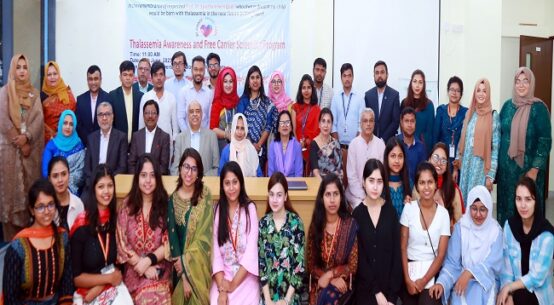
Speakers at a discussion arranged by Centre for Policy Dialogue (CPD) were of the opinion that taxing the digital economy and curbing tax evasion of both domestic and non-resident multinational companies will help improve the tax-GDP ratio in line with the IMF programme for Bangladesh.
Bangladesh’s tax-GDP ratio can reach 9.4% from the current 7.8% over the next 3 years through digital adaptation of the National Board of Revenue (NBR) along with raising the capacity of tax officials, they pointed out.
The speakers made the observations at a discussion on “Taxing the Digital Economy: Trade-offs and Opportunities”, organised by CPD and sponsored by the European Union (EU) on the occasion of 50 years of EU-Bangladesh partnership.
Professor Mustafizur Rahman, distinguished fellow, CPD, gave a presentation on the topic – highlighting some areas of taxing the digital economy and a scope of increasing revenue, desired by 2026.
He illustrated that despite setting high revenue and tax collection targets in various policy plans, Bangladesh has consistently failed to meet them. For instance, the tax-GDP target set in the 7th five-year plan for FY 2019-20 was 14.1 percent, but the actual ratio was down, and was below half of that.
Bangladesh has to earn an additional revenue of Tk 2.34 lakh crore by 2026. As per IMF recommendation, the tax-GDP ratio is to improve by 0.5 percent in FY 2023-24, 2024-25 and 0.7 percent in FY 2025-26, which is two-thirds more than the current fiscal year’s tax collection target.
The presentation recommended that non-resident tech giants such as Facebook, Google, Amazon and Netflix be brought under taxation system along with strengthening the monitoring of NBR against tax evasion.
Former finance secretary Mahbubur Rahman said the number of individual taxpayers is quite low in the country in contrast to those who should be paying taxes. It can introduce old age benefits for individual taxpayers to encourage people to pay income tax, he said.
Former NBR Chairman Dr Mohammad Abdul Mazid said the government and the parliament should study first why the tax-GDP ratio is not increasing. After finding the gaps, measures can be taken to resolve it.
He also said the Digital Security Act is also a barrier to freedom of growing the digital economy, so the government can keep provisions of other acts to protect from cybercrime.
CPD’s distinguished fellow Dr Debapriya Bhattacharya gave five points for increasing the tax revenue from the digital economy and said that ensuring transparency, neutrality, fearlessness, efficient human resources and simplicity in the method of collecting tax will help to increase tax collection.
Kazi Nabil Ahmed MP, member of the Parliamentary Standing Committee on Ministry of Finance, was present at the function as the chief guest.
Ahsan Adelur Rahman MP, member of Parliamentary Standing Committee on Estimates, and Mostafa Azad Chowdhury Babu, senior vice-president of FBCCI, were present as special guests.
Dr Fahmida Khatun, Executive director of CPD, moderated the programme.
EU officials, former NBR chairmen, former finance secretaries, economists, representatives of different trade bodies were present at the CPD discussion.

